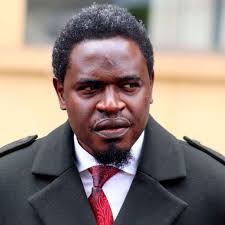On Friday, Kenya’s High Court upheld the constitutionality and composition of the bench hearing seven consolidated petitions seeking the removal of Supreme Court judges. The three-judge panel, consisting of Justices Charles Kariuki, Lawrence Mugambi, and Bahati Mwamuye, rejected the petitioners’ request for recusal, citing no valid grounds for challenging the assigned bench.
The petitions, filed by lawyer Paul Havi, former Cabinet Secretary Raphael Tuju, and other lawyers associated with Ahmednasir Abdullahi’s firm, allege irregularities in the Judicial Service Commission’s (JSC) disciplinary proceedings against Supreme Court judges. Petitioners argue that certain judges have entertained appeals lacking significant public interest, especially in high-stakes commercial cases, raising concerns about potential graft and misuse of judicial authority.
Havi and Ahmednasir had opposed the empanelment of the bench by Chief Justice Martha Koome, claiming that the CJ, as a party to the case, should not appoint judges to hear the matter. They further contended that Deputy Chief Justice Philomena Mwilu should have appointed the bench instead.
The High Court, however, dismissed these arguments, affirming the impartiality of Justices Mugambi and Mwamuye and rejecting claims that the bench’s composition suggested bias or loyalty to Chief Justice Koome. Allegations questioning the judges’ independence were also dismissed.
The court has scheduled February 26, 2026, as the date to hear all seven petitions. Judges named in the petitions have been directed to file their affidavits within 14 days. This ruling ensures that the process moves forward under the current bench, maintaining procedural consistency in a case that has drawn significant public attention.
Justice Mugambi, in April 2025, had directed Chief Justice Koome to empanel the bench, a move opposed by petitioners but now validated by the High Court. This decision marks a key step in the ongoing scrutiny of Kenya’s judicial disciplinary processes and sets the stage for a substantive hearing early next year.

